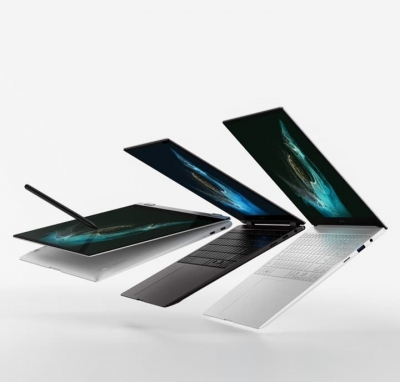New Delhi: Tweaking of licensing rules by the commerce ministry’s arm DGFT for imports of certain IT hardware products like laptop and computers will help boost domestic manufacturing, think tank GTRI said Friday.
Grant of exception to laptops and tablets assembled in special economic zones (SEZs) from import restrictions would make a significant shift in India’s electronics manufacturing landscape, Global Trade Research Initiative (GTRI) said.
The government Thursday tweaked the cumbersome licensing norms for import of these products and put in place an online authorisation system for importers.
The new licensing or authorisation regime is primarily aimed at monitoring imports of these products to ensure that they are coming from trusted sources.
These regulations are set to come into force November 1 and are poised to reshape the industry until September 2024, it said.
“Local suppliers now have two routes to procure laptops for the Indian market – they can buy laptops from firms located in SEZs or opt for direct imports,” GTRI co-founder Ajay Srivastava said.
He added that many global firms have already invested in manufacturing laptops and other devices within various SEZs across India.
“For example, Dell is present in Chennai SEZ, HP and Foxconn in Sri City SEZ, Acer in Tirupati SEZ, Lenovo in Puducherry SEZ, and Wistron in Sriperumbudur SEZ,” Srivastava said.
“New DGFT (directorate general of foreign trade) rules further boost local SEZ production as the import restrictions do not apply to laptops assembled in SEZs,” the GTRI said, adding the rules permit firms in SEZs to sell laptops without any import authorizations.
This step was taken to favour laptops assembled in SEZs over imported laptops.
It said that the government could not introduce higher import duties to curb imports due to its commitment to zero duty on most electronic import items, dating back to 1997 when it signed the Information Technology Agreement (ITA-1), a plurilateral agreement under the WTO (World Trade Organisation).
As a result, requiring firms to obtain government permission before importing became the sole option to control imports, it said, adding firms that wish to import directly must apply online through the DGFT system, providing details such as import quantity and the country of import supply to obtain authorization.
These authorizations must be submitted to Customs when importing laptops and tablets.
In 2022, global exports of personal computers (PCs) and laptops reached $163 billion, with China supplying over 80 per cent of laptops and producing most components in-house.
The global reliance on a single country, especially one as geopolitically sensitive as China, poses risks, as demonstrated by events like the COVID-19 pandemic, Srivastava said.
“India must avoid incentivising superficial assembly operations. Such operations have disappeared when incentives were removed in the past. Even for established firms, the value addition in India has been relatively low, but it is expected to increase soon,” he said.
“The new DGFT rules and the enhanced PLI scheme are significant steps towards promoting local manufacturing and reducing India’s reliance on imports for laptops and tablets,” he added.
India’s imports of these products amounted to $8.8 billion in 2022-23.
These products include PCs/laptops and tablets, with imports worth $5.3 billion, as well as items like Wi-Fi dongles, smart card readers, and Android TV boxes, totalling $2.6 billion.
PTI
